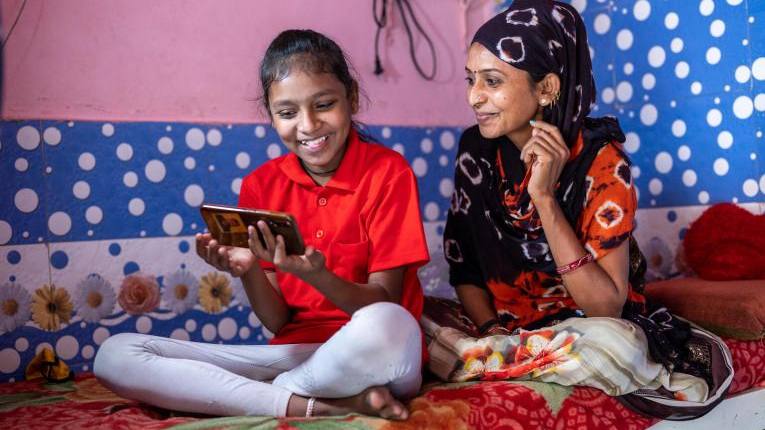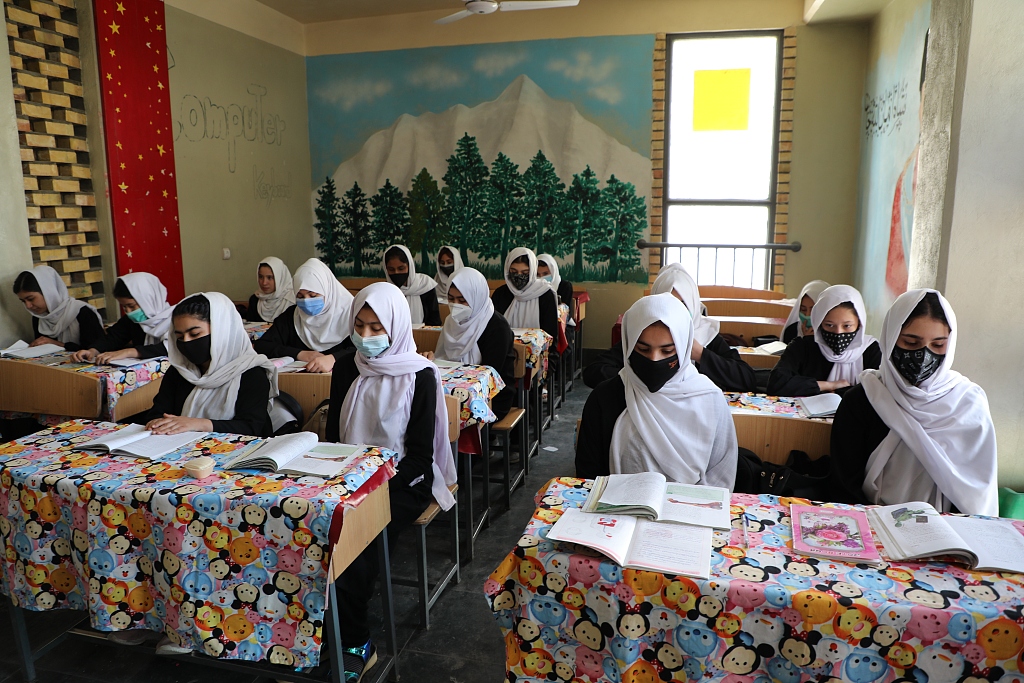
A mother helps her daughter with online studies while schools are shut during COVID-19 in India. /UNICEF
A mother helps her daughter with online studies while schools are shut during COVID-19 in India. /UNICEF
For the second year, World Children's Day arrives as COVID-19 exacerbates the existing struggles of the world's most vulnerable.
As children and young people continue to bear the brunt of the global pandemic and internal insecurity in many parts of the world, the United Nations Children's Fund (UNICEF) has called on governments, civil society and other stakeholders to help build a better post-pandemic world for every child and listen to the voices and concerns of children and young people.
Studies have shown that a combination of livelihood losses and pandemic lockdowns have had a detrimental impact on children's well-being, limiting their access to a nutritious diet, healthcare and education.
One Nepal-based report released in July by UNICEF revealed stark loss of earnings and livelihoods among half of the households during the pandemic, which has resulted in increases in early marriage, child labor and other forms of child exploitation.
Afghanistan goes dark
In countries embroiled in conflict and unrest, the situation gives no reason to celebrate. As UNICEF observes World Children's Day worldwide on Saturday, the UN agency's Afghanistan branch has called off this year's celebration, with its online platforms "blacked out" to highlight the plight of Afghan children for the occasion when it typically "goes blue."
Almost 14 million children in Afghanistan do not have enough food to eat, according to the UN agency, warning that over 1 million Afghan children are at risk of dying due to severe acute malnutrition.
Meanwhile, there is a reported rise in cases of early marriage, child labor, child recruitment by armed groups, and education curtailment. It is estimated that among the 4 million Afghan children out of school, more than half of them are girls.
"It is difficult to celebrate being a child in Afghanistan right now. By closing our digital platforms on World Children's Day, we want to send a message to donors urging them to support Afghanistan's children," said Alice Akunga, the acting UNICEF representative in Afghanistan. "Those least responsible for this crisis are paying the highest price."

Girls attend a class in a high school in Mazar-i-Sharif, Afghanistan, October 10, 2021. /CFP
Girls attend a class in a high school in Mazar-i-Sharif, Afghanistan, October 10, 2021. /CFP
Hope amid crises
Despite a multitude of crises, children and young people today are more likely to believe that the world is becoming a better place than older generations, according to a new UNICEF-Gallup survey released ahead of World Children's Day.
From climate change, education and mental health, to ending racism and discrimination, children and young people are raising their voices on the issues that matter to their generation and calling for adults to create a better future, the survey of more than 21,000 children and adults in 21 countries showed.
"There is no shortage of reasons for pessimism in the world today: Climate change, the pandemic, poverty and inequality, rising distrust, and growing nationalism. But here is a reason for optimism: Children and young people refuse to see the world through the bleak lens of adults," said UNICEF Executive Director Henrietta Fore.
"Compared to older generations, the world's young people remain hopeful, much more globally minded, and determined to make the world a better place. Today's young people have concerns for the future but see themselves as part of the solution."
World Children's Day is celebrated on November 20 each year to mark the anniversary of the UN General Assembly's adoptions of the Declaration of the Rights of the Child and the Convention on the Rights of the Child. The theme of 2021 is "A Better Future for Every Child."

